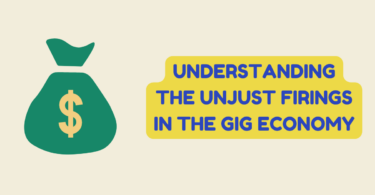
Mental Health
It’s essential to have a support system in life. Friends and family can help you through difficult times. You can talk to your loved ones when you need advice, a shoulder to cry on, or want to share your successes. These are people who are invested in you as a person. Loved ones are different from a mental health professional. A therapist isn’t a friend. They want to support you, but they are not somebody that you will spend quality time with because that’s not their role in your life. A therapist is there to support you, but you don’t need to do the same for them. Here’s the difference between a therapist and a friend and why it’s essential to make that distinction.
A therapist/client relationship is one-sided
Unlike a friend, a therapist isn’t going to share their problems with their client. Your therapist is there to help you. They will learn all about your challenges, your mental health concerns, and anything that you’re struggling with so that they can support you. They are not going to tell you about their personal information because their role isn’t to be your friend. Friends exchange secrets about one another. They are there to support each other through tough times. You learn about your friend’s inner monologue. You understand what they’ve gone through in life and not about their family dynamics. A therapist isn’t going to share childhood memories with you. They are there exclusively to help you with your issues. That’s a positive thing because you want a therapist who is dedicated to your emotional well-being.
You don’t have to worry about offending your therapist
With friends and family, you need to be mindful of their feelings. While it’s important to remember that your therapist is a human being, you don’t have to worry so much about offending them because you can say anything you want in therapy. Your therapist is there to unconditionally accept you. Their role isn’t to judge who you are or what you say. What you talk about in therapy is confidential unless you intend to harm yourself or others. The critical thing in therapy is, to be honest about what you think and how you feel. That way, you can get the best treatment. When it comes to your friends, you have to be mindful of their emotions and how what you say could impact them. In therapy, it’s all about you and what you need to change about yourself.
A therapist won’t abandon you
Going to therapy is a relationship that you cultivate between you and your counselor. Your therapist isn’t going to stop seeing you randomly. When you agree that the relationship is a good fit, a therapist will see you for as long as you need them. Sometimes things need to change. Maybe your therapist feels that you are done with treatment because you have learned the coping skills you need and are ready to graduate from therapy. But they’re not going to ghost you without letting you know what’s going on. A therapist communicates how the relationship is going. They will let you know how they feel you are progressing in treatment, and they won’t just leave. A friend, on the other hand, could decide that they don’t want to continue the relationship, and they don’t necessarily tell you. Some people drift away from relationships because they don’t feel connected to that friend anymore. A therapist won’t do that, partly because they have a professional obligation to communicate with you how the relationship is going and to salvage it. Additionally, because they care about you as a person. That’s because an excellent mental health professional is dedicated to helping their client succeed.
Going to therapy can help you
Friends and family are lovely supporters when it comes to you rooting for you and sharing life experiences. A therapist is someone who is dedicated to helping you with your specific mental health needs. Whether you engage with a counselor online or find somebody in your neighborhood, you can improve your mental health. You can read more about different mental health conditions on Mind Diagnostics. If you’re struggling, it’s okay to reach out for the help of a mental health professional. You deserve the support and care of somebody who can handle these challenges.






